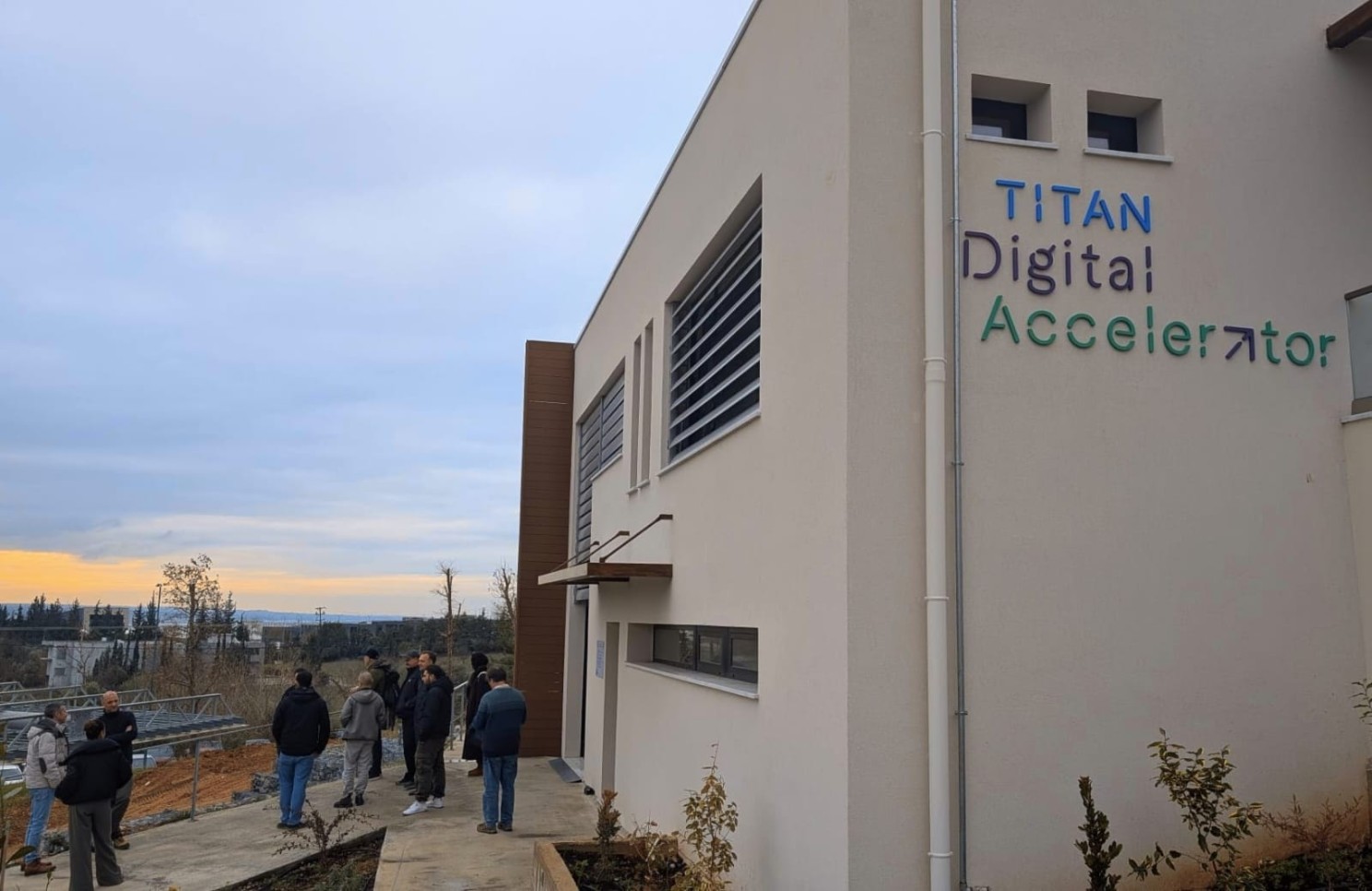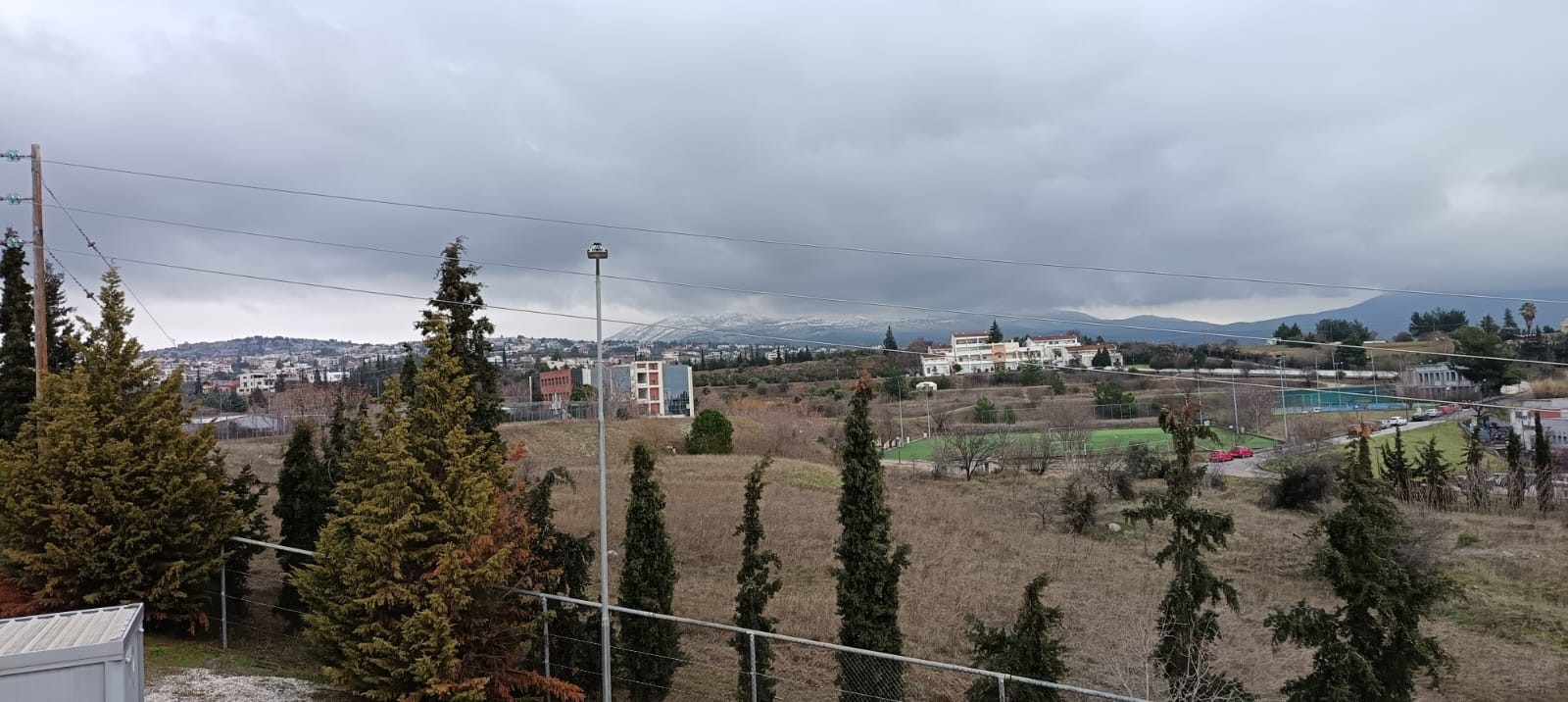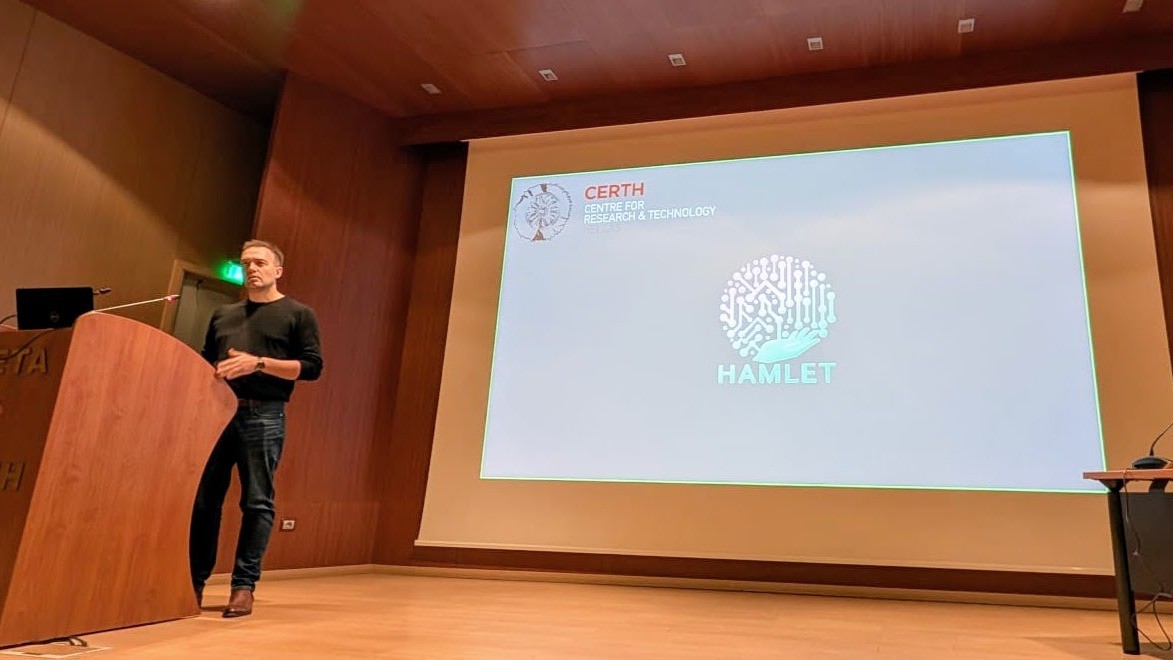At the end of January, I had a great time traveling to Thessaloniki, Greece, with Jonathan Goodacre, our Head of International Consultancy, for the HAMLET project kick off: "Human-centred generative AI fraMework for culturaL industriEs’ digital Transition (HAMLET)."
Together with 11 fantastic partners from across Europe—representing Greece, Cyprus, Austria, the Netherlands, Germany, and the UK—we launched this ambitious three-year initiative to bring the benefits of generative AI to the Cultural and Creative Industries (CCIs). Partners include game studios, dance companies, experts in ethics, user-centred design, and cutting-edge AR/AI technology.
An EU Horizon Project with UK Participation
HAMLET is funded as part of the EU Horizon Programme, underlining its role in advancing digital and cultural innovation across Europe. Thanks to the agreement between the UK and the EU, supported by Innovate UK, UK organisations can continue to contribute to and benefit from Horizon projects, fostering collaboration and shared expertise across borders. This partnership highlights the importance of collective European efforts in supporting meaningful progress for the cultural and creative sectors in AI and digital adoption.
A Memorable Kick-Off Week
The week-long meeting was an incredible opportunity to connect, share knowledge, and learn from one another. The room was filled with enthusiasm as we discussed HAMLET’s vision, goals, and plans for the future. Yes, there was talk about amazing tech but the focus was on what problems needed solving, what decisions need answering, what insights drive impact and how to keep the "human in the loop".
A special thanks goes to CENTRE FOR RESEARCH AND TECHNOLOGY - HELLAS (CERTH) for hosting us and taking such great care of all the partners. We were thoroughly looked after, with the delicious Greek cuisine providing a welcome opportunity to discuss one on one with partners.
Jonathan and I, particularly enjoyed the evening hospitality which blended traditional and modern elements in a fantastic dinner where the wine, ouzo and conversations flowed. I always come home pining after the wine and those fresh tomatos that Greece does so well - even when it was Winter!
The kick-off week laid a solid foundation for the project, giving everyone involved the clarity and motivation needed to tackle this important work. It also reinforced the project’s mission: to democratise access to generative AI and foster a sustainable digital transition for Europe’s CCIs.

What Is HAMLET?
HAMLET is an innovative initiative designed to make generative AI accessible to all entities in the cultural and creative sectors, regardless of their size or resources. Its mission is to empower CCIs to harness the transformative power of AI while ensuring sustainability, responsible adoption and inclusivity.
Two Core Components of HAMLET:
The HAMLET Collaborative Community Hub A digital collaboration platform enabling organisations to pool investments, share resources, exchange competencies, and adopt shared profit-based collaboration models. This AI-powered hub will act as the backbone of the project supporting partnerships and reducing the barriers to AI adoption.
- Seven AI Enablers A suite of innovative tools, developed by talented partners aims to simplify creative workflows and drive co-creation within the CCI ecosystem. These enablers will serve as demonstrators of HAMLET’s generative AI framework, showing how AI can enhance creativity and innovation.
HAMLET ambitions are not just the technological infrastructure necessary for digital transformation - it also creates an ecosystem where collaboration, shared success, and equitable distribution of benefits are shared. We will explore and develop business models that promote sustainability and inclusivity. These models include mechanisms for equitable profit-sharing and reducing barriers to AI adoption, whilst incentivising shared success.
The Audience Agency's Contributions
As one of the project partners, The Audience Agency (TAA) is contributing to HAMLET through various key activities, such as leading dissemination efforts, supporting the development of AI tools that adapt cultural content to audience needs, and providing analytics to understand engagement trends. Additionally, TAA is actively involved in pilot programs including in the UK, stakeholder engagement, and providing collaboration spaces to explore ethical, societal, and cultural aspects of AI technologies.
Pilots and Practical Applications
Over the course of the project, HAMLET will be tested through four pilot cases in different CCI sectors across four European countries. These pilots will demonstrate how generative AI can:
- Streamline creative workflows
- Foster collaboration between organisations
- Drive innovation and support audience wellbeing
By focusing on practical applications, HAMLET aims to prove that AI can be both transformative and accessible for the cultural and creative sectors.
Why This Matters
In today’s rapidly evolving digital world, where the pressure to start using new tools becomes over bearing, and the talk is often on the latest tech or app, rather than the most pressing challenges, taking the time to prioritise and collaborate are more important than ever. By embracing peer-to-peer learning, open-source applications, and shared success, we can ensure that the cultural sector thrives in the digital age. As we know from our work across the UK and further afield, there is a real need to providing a level playing field for the adoption of new technologies. HAMLET represents a significant step forward in this journey, offering organisations the priorities, understanding and tools they need to innovate and adapt while preserving Europe’s cultural heritage.
This project is further supported by its alignment with the EU’s Horizon Europe Innovation Action objectives, which aim to make cutting-edge digital tools available to all. Through its pilots and practical demonstrations, HAMLET delivers the kind of forward-thinking collaboration needed to bridge the gap between AI technology and the cultural sector’s unique needs.
Get Involved
We believe that collaboration is key to ensuring the success of initiatives like HAMLET. This project is not about building silos or replicating effort but fostering a sector that supports and learns from one another. Jonathan and I are keen to hear from you – please get in touch with us if you’d like to learn more about the project or explore ways to work together to connect our efforts.
If you also have any UK sources of great tasting tomatoes or Greek wine, I would love to hear from you - send me a message! Stay tuned for updates as we embark on this exciting journey!




